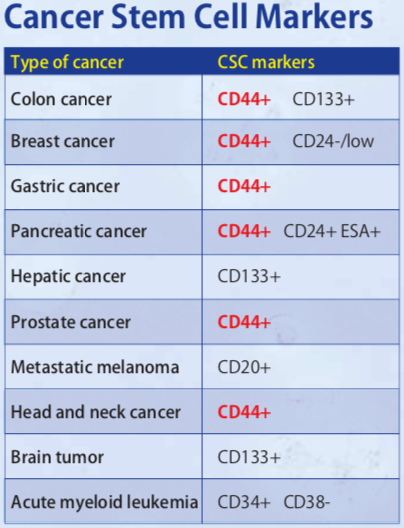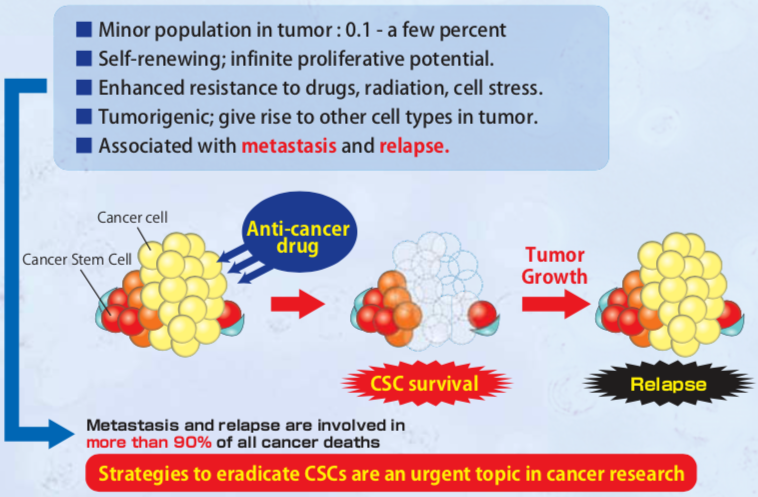
Anti CD44 Antigen v9 mAb (Clone RV3)
CAC-LKG-M003
ApplicationsFlow Cytometry, ImmunoFluorescence, ImmunoPrecipitation, Western Blot, ELISA, ImmunoCytoChemistry, ImmunoHistoChemistry, ImmunoHistoChemistry Paraffin
Product group Antibodies
Overview
- SupplierCosmo Bio USA
- Product NameAnti CD44 Antigen v9 mAb (Clone RV3)
- Delivery Days Customer16
- ApplicationsFlow Cytometry, ImmunoFluorescence, ImmunoPrecipitation, Western Blot, ELISA, ImmunoCytoChemistry, ImmunoHistoChemistry, ImmunoHistoChemistry Paraffin
- CertificationResearch Use Only
- ClonalityMonoclonal
- Clone IDClone rv3
- HostRat
- Scientific DescriptionCD44 is a single-pass type I transmembrane protein and functions as a cellular adhesion molecule for hyaluronic acid, a major component of the extracellular matrix. It exists in numerous isoforms that are generated through alternative splicing of CD44 precursor mRNA. Whereas the standard isoform of CD44 (CD44s) is expressed predominantly in hematopoietic cells and normal epithelial cell subsets, CD44v (variant) isoforms, which contain additional insertions in the membrane-proximal extracellular region, are highly expressed in epithelial-type carcinomas. Moreover, CD44 is reported to be a cell surface marker for cancer stem cells (CSCs) derived from solid tumors including breast, prostate, colon, head and neck and pancreatic cancer. Expression of CD44, especially variant isoforms (CD44 v8-10), contributes to reactive oxygen species (ROS) defense through upregulation of the synthesis of reduced glutathione (GSH), the primary intracellular antioxidant. CD44 v8-10 interacts with and stabilizes xCT, a subunit of the cystine-glutamate transporter xc(-), and thereby promotes cystine uptake for GSH synthesis. The ability to avoid the consequences of exposure to high levels of ROS is required for cancer cell survival and propagation in vivo. CSCs (whose defense against ROS is enhanced by CD44v8-10) are thus thought to drive tumor growth, chemoresistance and metastasis. Clone RV3 (a monoclonal antibody specific for human CD44 v9) can be used in flow cytometry, and importantly, for the enrichment of CSCs using FACS. RV3 can be applied towards understanding a variety of molecular mechanisms and towards the development of new medicines against cancer stem cells using in vitro cell-based assays such as the in vitro sphere formation and in vivo lung metastasis assays. References: 1) Nagano O., et al., Oncogene. 2013 Jan 21., 1-8. PMID:23334333 2) Ishimoto T., et al., Cancer Cell. 2011 Mar 8;19(3):387-400. PMID : 21397861 3) Yae T., et al., Nat Commun. 2012 Jun 6;3:883. PMID: 22673910 4) Tsugawa H., et al., Cell Host Microbe. 2012 Dec 13;12(6):764-77. PMID: 23245321 5) Tanabe KK., et al., Lancet. 1993 Mar 20;341(8847):725-6. PMID: 8095628
- Storage Instruction2°C to 8°C
- UNSPSC41116161



